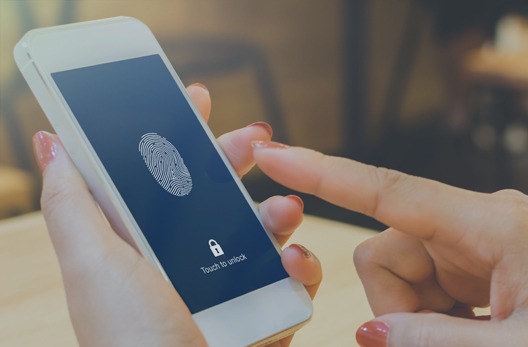With the Coronavirus sweeping across the globe, the vast majority of us are beginning to adapt to remote working. This, unsurprisingly, is causing significant changes and issues in processes, plans and productivity.
These issues are mainly due to the fact that our minds are elsewhere. Either we are fretting about loved ones, are stranded in foreign countries, are stressed about paying bills with new working terms or are concerned about our food supplies. Worried is an understatement. But, if you are one of the fortunate few who is able to continue working from the safety of your laptop, there are some methods we recommend if you wish to make the most out of a bad situation.
Regardless of what type of worker you consider yourself to be, or the lifestyle you lead, ask any freelance/remote hand, and they will tell you that home working takes dedication, motivation, and strategy. Getting into the right mindset is half the battle and, when it comes down to it, we will all face similar issues with remote working.
To help, here are our Eleven Top Tips for staying productive and maintaining business and services throughout this difficult time.

1. Routine
It may be tempting to jump into your pyjamas and work from the comfort of your duvet, but we strongly advise not to. While this may be exciting for the first couple of days, as you relish an additional hour’s sleep, maintaining a healthy routine that is as close to your normal routine is critical for your mental health. Why? Because, for some of us, a lack of structure can cause stress, confusion and even anger.
Without structure, it is easy to fall into a vegetative state. And, for the socialites among us, not being able to leave the house to attend events can make us sad, lonely and depressed. To combat this, get up, get dressed, have breakfast and start your day like any other.
Keep the radio or TV on in the background while you work. Loneliness can have serious consequences, so keeping up to date with news, or having your favourite channel on in the background, can enforce a sense of connectivity with the outside world.
2. Socialise
Another way to combat loneliness, being disconnected or isolated, is by communicating with colleagues on a regular basis, and I don’t just mean for work related meetings. Humans are, after all, social creatures. We all benefit from the endorphins that come with having a chat. So, make sure that interactions are met. Maintain your WhatsApp group chat, message people on Teams, talk to them about their day and everything within it.
3. Work-based Communication
This cannot be stressed enough. Ensure that your team knows what you are up to, your schedule, your priorities and your concerns. It is important to let people know where you are with things. It is equally important to spend time listening to others so that everyone is on the same page. You don’t need to spend hours repeating yourself, just make sure that you don’t go off grid.
How? Be proactive. Use Teams, Facetime, Messenger, Skype…whatever you want, just make sure that you keep people up to date. Take part in videos, calls and attend all possible meetings to make your presence known.
In addition, with less face time, the tone of messages can also become diluted. Although frowned upon in some industries, in this case, the use of emojis to assist with conveying the right tone of voice may be beneficial.
4. Working Hours
We strongly advice that you try to continue your usual working hours and are not tempted to start or finish earlier or later. Clearly identifying and differentiating between your working time and your personal time is crucial. It is very tempting to overwork while you are sat alone in your room. But this is not sustainable, and can cause burnout, fatigue and stress. Equally, a change in routine will have a knock-on effect throughout your business. If you were burning the midnight oil and slept through a morning call, for instance.
5. Working Hours- Part 2
It may be easy to shut down your laptop at the end of the day, but it is harder to switch off your phone. If possible, keep a separate device for work related calls, messages and emails, to ensure that an even work-life balance is met.
6. VPN
Outside the office, many will be relying on networks that they cannot monitor. With little control over these, it is crucial that you use a VPN at home and in co-working spaces. Some businesses will have a VPN of their own, that is available for employees off-site. It is always safer to have a VPN, so get into the habit of using one.
There is a key issue here, however. In that connections to corporate environments can be exploited as a backdoor. Our home networks are untrusted, and connections should be secured and monitored.
Here are a few prevalent SIEM use cases that indicate malicious behaviour within your VPN:
a) Long running VPN session exceeds 8 hours from the log-in to the log-off session
b) Concurrent VPN communication: single IP with multiple users
c) Concurrent VPN communication: single user, but multiple IPs
d) Large Bytes transfer vi VPN
e) VPN rules from Restricted geo location
For more information on how to identify these issues on your network, contact our team here.
7. Dependence on Cloud Platforms
Webex, Teams, GoToMeeting, Zoom are all experiencing unprecedented demand as most of the world goes remote. Our dependence for file sharing and collaboration have serious implications and potential for unintended or malicious data exfiltration. To learn how to combat these issues, learn about our Vulnerability Assessment here.
8. Break Away
For the majority, coffee and tea breaks are an essential element within the working environment. But without team members to prompt you into a group lunch, a chat by the water cooler, or a stroll to the bathroom, breaks are often forgotten. Set an alarm and ensure that you take regular coffee and lunch breaks. Lock yourself out of your computer if needs be. Your health is priority.

9. Spice It Up
Ensure that when you take a break you don’t just change screens to scroll through social media. Do something that will fire up a different area of your brain. Talk with a flatmate, play a musical instrument, paint, or cook. Walk the dog and get some fresh air and natural light. If you have a garden, use it. Or take a walk somewhere that is not crowded. Even better, get some exercises. If you feel up for it, go for a run. It is important to maintain physical health. And, if you can’t leave the house at all, do some yoga in your bedroom, some mediation in the kitchen and some Pilates in the lounge.

10. Working Space
Not all of us have the luxury of a home office. Which means we are getting creative. I have seen ironing boards for desks, cardboard boxes for chairs and extension cables draped from room to room. However you decide to generate a place for work, and whatever it may look like, the important factor here is that you create an area that will help partition your working and private hours.
Another element to take into consideration is that many of us will have to be in isolation with whole flats/houses of people. Which means it is going to get snug. Clear rules will help. Highlight the working spaces in the house, the times you will be free, the communal areas and be considerate of one another. It’s good to socialise with your family/flatmates, but don’t let them distract you to the point that you can’t get on with your work.
11. Take Pride
Remote working is going to take some discipline. And the situation is far from conventional or convenient, so be proud of the way you and your colleagues are handling it. We are all in this together.
For more advice on how to work remotely, contact us here.
Or to see how SecurityHQ are managing working conditions amidst COVID-19, read our blog here.










